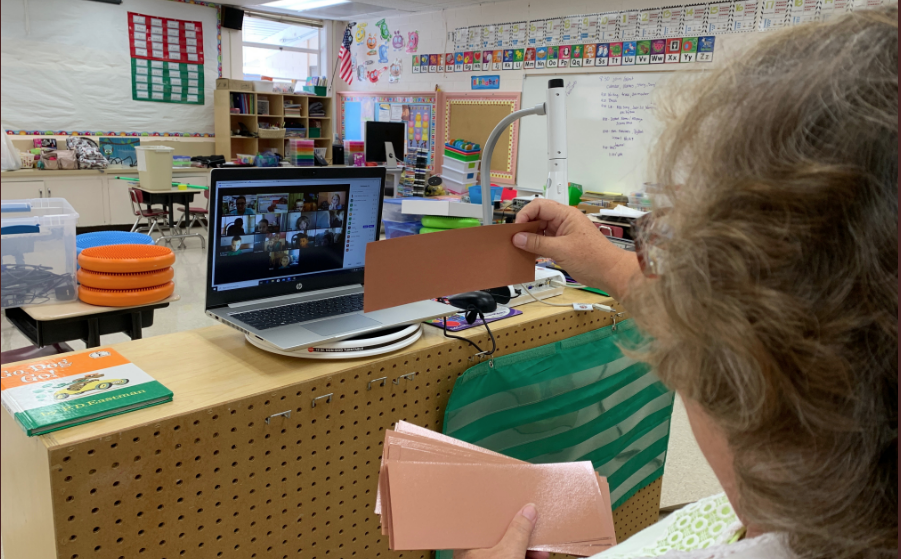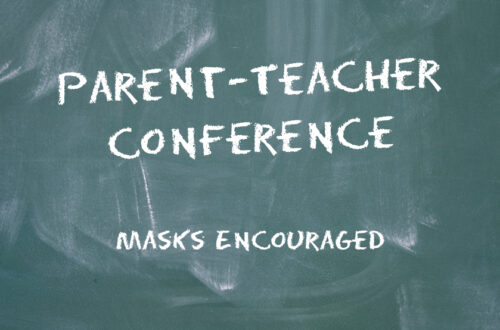
Superintendent Emphasizes Support for Teachers, Students, Parents
By Terri Barnes
Jesse Najera is the superintendent of Silver Valley Unified School District in California. He is also a member of the California State Council of the Military Interstate Children’s Compact Commission. Military-connected students make up seventy-five percent of Silver Valley’s 2,200 students. The district’s seven schools, Pre-K to 12th grade, serve military families from Fort Irwin and Marine Corps Logistics Base Barstow.
This year, California’s COVID measures required all schools in Silver Valley to begin the academic year in virtual classes. One day after the district’s teachers and staff were back on their campuses, Jesse took a few minutes to talk about ways to support teachers, students, and parents in this new and unusual school year.

TB: What are some of the obstacles you, your administrators and teachers are facing, personally and professionally, as you begin this school year with virtual classes?
JN: Obstacle one is the unknown, the fear of the unknown. Every day the information changes about how kids are affected by COVID. As a superintendent I want to have kids on campus, but I also want the safest choice for our students. Right now that is virtual school. It’s not just a matter of our parents and the community we serve, but also our teachers have families, and they’re concerned for their health.
I want to have kids on campus, but I also want the safest choice for our students … also our teachers have families, and they’re concerned for their health.
One obstacle for our educators is childcare. Most of our educators’ families are working families, meaning both parents are working. Teachers and staff are running the virtual school from their schools and classrooms, even though students are staying home. Distance learning means their own kids are also not going to school.
TB: What are some ways your district supports educators, including teachers, counselors, teaching assistants, and others?
JN: From the beginning of the summer we brought in leaders from every campus in our district to talk weekly to prepare for distance learning. It’s a real collaboration with our teachers and staff. Our teachers are parents. Our principals are parents and have kids in our schools. So for those educators who have to be here teaching, we’ve set up learning labs for their own kids to be here, because they can’t be home for distance learning for them while they’re teaching. Our staff has confidence that we’re not going to take shortcuts with safety. We started back this week [with teachers at the schools]. If we can’t prove we can keep kids safe when there’s a small number of kids there for childcare, we’ll have no credibility to bring more students back if we move to the hybrid model. We’re using distancing protocols, we’re cleaning … we’re wearing face masks. We’ve also given our teachers an option to work from home if they have a legitimate medical reason.
TB: How would you encourage parents of new military-connected students to approach teachers and create cooperative relationships?
JN: A lot of our military parents are trained and advised to be advocates. In a lot of places they have to go and fight to get what they need for their kids. That’s not Silver Valley. I am on the California council for the Interstate Compact Commission. We’re front and center with the Interstate Compact. We’re telling parents, “Here’s how we will support your kids according to the compact.”
When you come in as a parent and show empathy to teachers, recognize they are parents too. When a parent approaches a teacher and says, “I’m here to support you. What can I do?” a teacher knows there’s an ally there. It’s not going to be adversarial. Educators appreciate hearing what they are doing right. It makes us want to do even more for them.
When a parent approaches a teacher and says, “I’m here to support you. What can I do?” a teacher knows there’s an ally there.
Also, teachers appreciate parents who offer to help, particularly in the world of technology at the moment. I’ve seen virtual plans for family nights and PTA nights, and I’m thinking, “Wow, all this creativity!” Sometimes that comes straight from parents who say “I can help.” That’s the kind of volunteer we need right now when we can’t have people on campus.
TB: Military parents often worry their kids will fall between the cracks with any school transition. This year, military families who are moving into virtual or hybrid school environments are even more on edge about this possibility. How do you reassure parents of new military-connected students?
JN: We did five or six town halls for parents, telling them to ask us anything, and asking them to share their experiences with distance learning. We had 26,000 people who saw one of our town halls, and that was only because the army used their platforms to share it. We have great partnerships with both commands and with the commanders. That’s a big deal. We partner with them in many ways, and that includes communication.
We have a lot of video and media showing the technology in our classrooms. The first thing we love to do is get on the phone with them. We want parents to feel great about (their students) coming here. It’s even more important now, because they’re really concerned about what distance learning is going to do for their kids. We want to show them we have live daily instruction. We’re providing laptops for students who need them, providing hot spots for students who need internet connectivity. A student will go home with a whole suite of tools and textbooks. We’re not just telling them to log on to the computer and leave them on their own.
Educators appreciate hearing what they are doing right.
We want to help new parents know what’s coming, make a family feel better about where they’re coming. Fort Irwin is remote. I can’t do anything about the distance, but I can speak to the quality of our programs and what we’ve been recognized for.
Our school is used to military students. Especially for a parent of a high school kid, we tell them we know transcripts. We know how to bring in units from somewhere else. We’re going to get you to graduation. We have forty percent turnover every two years, but we still find ways to get them to graduation. We have had a graduation rate of a hundred percent over the past two years. We want to assure them, your kid’s not going to take a step back by any means. In fact, we’re going to catapult them forward. We have our website, a school guide; we have videos on YouTube. We say,”Read all about us.” We’re not perfect, but we have a quality program, and we’re always looking for ways to get better.
TB: How can military parents partner with teachers in the midst of a pandemic to support their kids and help them adjust socially and academically?
JN: That’s a challenge, because that’s such a big part of school. We have a top-of-the-line social and emotional curriculum, and we’ve made it a priority. There’s dedicated time in the master schedule, whether in distance learning or on campus, for social emotional activities for team-building and social-skill development.
Sure, kids can do their work on their own later in the day, but if they do that every day they’re not coming to class … Students need to socialize regularly with peers even if it’s in Zoom.
In virtual classes, we’ve told parents we’re taking attendance daily, because sure, kids can do their work on their own later in the day, but if they do that every day they’re not coming to class and seeing other kids. Students need to socialize regularly with peers even if it’s in Zoom. We purchased the highest suite Zoom offers, so teachers have options to get kids together in breakout rooms in small groups. So for instance, four of them can work together on a project. We keep that in mind, looking for ways to get kids working together.
We also have a virtual counseling program that has been very successful and is available to any student who needs some help or attention for a particular issue.
I walked around all my campuses on our first day of school, and it’s such an eerie feeling not to see any kids. The second the county allows it, and when we feel safe, we’ll start—even if it’s smaller groups to begin with—we will welcome kids back to our classrooms.
Terri Barnes, senior editor at Elva Resa Publishing, is the author of Spouse Calls: Messages from a Military Life and editor of Seasons of My Military Student: Practical Ideas for Parents and Teachers.
Top photo: A teacher leads virtual learning at Silver Valley Unified School District in August 2020. Inset: Jesse Najera (Photos courtesy Silver Valley Unified School District and Jesse Najera.)
More about supporting teachers and students:
- Supporting Teachers Strengthens the Team
- Helping Kids Navigate Uncertainty from Military Family Life

